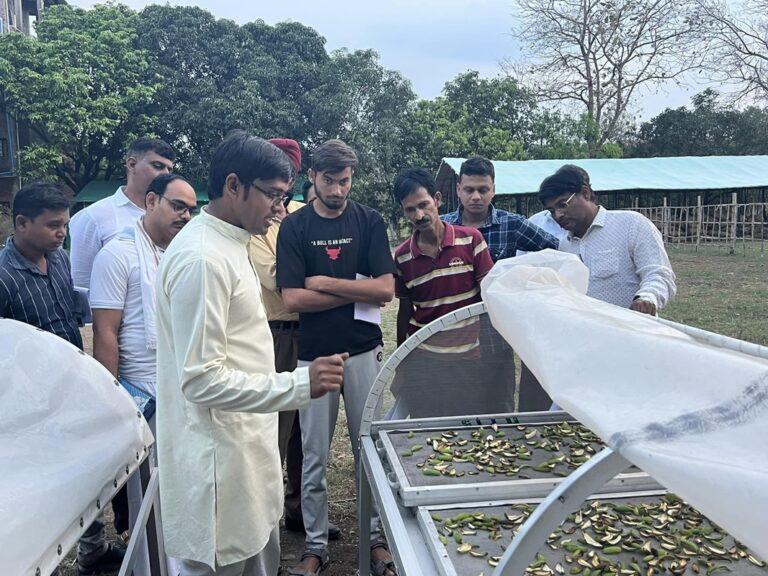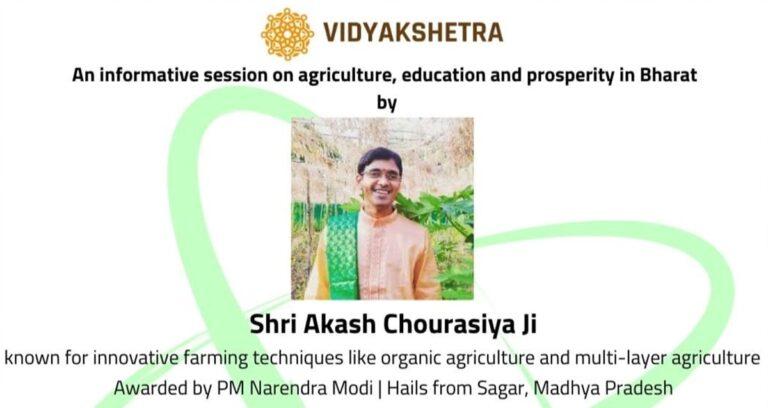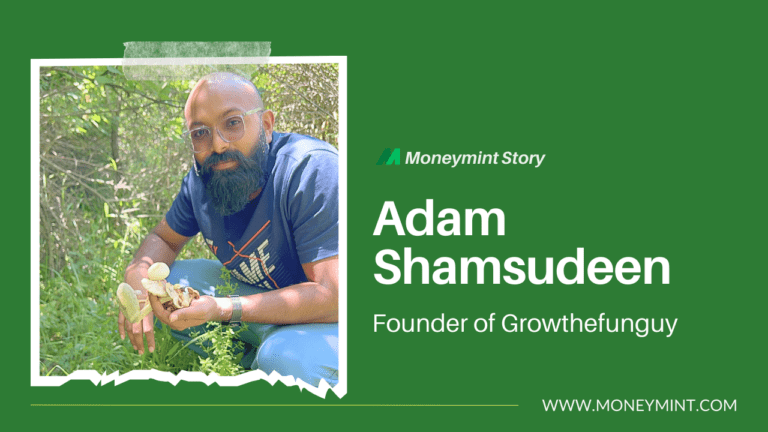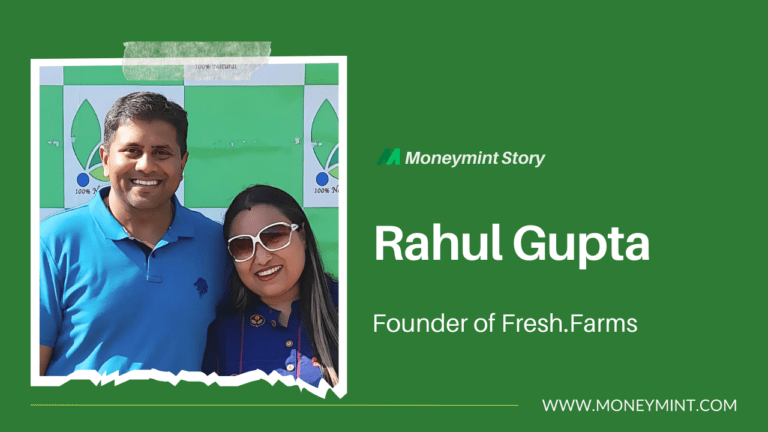Akash Chourasyia, a 32-year-old farmer from Bundelkhand, Madhya Pradesh, has transformed his life through the innovation of multi-layer farming methods.
Akash was born into a family of beetle farmers who made their living through beedi-making in the village of Tilli in the Sagar district of Bundelkhand. He had dreams of pursuing a medical degree to give a healthy life to people living around him. However, while preparing for AIIMS, he realized that this path would not help him reach his goal.
Akash viewed food as the direct factor affecting a person’s health. Thus, instead of ensuring better healthcare for people, he decided to provide chemical-free food.
When he decided to quit his medical preparation, he was only 20 years old. His bold decision made his family and friends upset. But Akash remained determined to follow his passion.
Eventually, his family, despite being against his decision, supported him. Although he lost a few friends on the journey, he was determined to build a model to produce clean and sustainable income.
Starting With Multi-Layer Farming Practices
On 1 June 2011, Akash began practicing with organic tomatoes. Typically tomato crops start fruiting within 50-60 days, but for Akash, it took six months. Seeing no result, people started doubting if the plant would ever produce fruit, but eventually, they did, and the crop bore fruit.
His experimented tomato crop grew 15 feet tall and the 1st harvest was around 10-12 kgs from a single plant. Moreover, the quality, taste, and size of the produce were amazing, which drew a lot of attention.
One of his PhD professors encouraged his students to visit Akash’s farm and understand his journey.
Growing Two Types of Crops

In 2014, when researching progressive agriculture techniques, he found a way to grow two types of crops in the same area at different levels. He takes Tomatoes and bitter gourd and plants one underneath and one on the surface. However, he encountered issues with grass and weeds in his crop. So, to combat this, he added green crops like Fenugreek, spinach, and coriander. These fast-growing leafy crops help reduce the space available for grass to grow.
Additionally, he utilized a bamboo structure to support another layer of crops which includes climbers. This innovative method reduces water usage by up to 80% and also effectively combats weed growth.
After finding success with his farming method, he decided to expand his operation by adding layers to his farm each year.
Today, on his 2.5-acre plot of land, he grows crops in five different layers.
Akash Followed Cost Reduction Strategy for Investment
Setting up a shed using bamboo and wild grass costs around Rs 1.5 lakh per acre every five years. However, for Akash, it is Rs 1.25 lakh as he uses locally grown materials.
Another way of saving money is by using indigenous seeds instead of expensive GMO seeds. Multi-layer farming is another cost-effective method as it saves 90% of water compared to traditional farming.
Accordingly, he earns Rs 12-15 lakh per annum and his net profit lies between Rs 8-11 lakh per year.
Methods of Income
Akash managed to achieve a gross profit of Rs 10.5 lakh from just one acre of land using a five-layer method with a net profit of Rs 7 lakh.
In addition to his main crop, he also supplements his income by selling vermicompost and milk. Akash farming practices involve the production of different types of compost, including one made from cow dung and rock phosphate and another using farm and kitchen waste. He produces 40 tonnes of vermicompost yearly, which he uses 5 tonnes on his farm, and sells the remaining for Rs 5000 per tonne.
Awards and Achievements

Akash received over 20 national awards to his name which include the Patanjali Krishi Gaurav Award, Jindal Foundation Swayam Siddha Award, and others. Despite this, he shares his knowledge through free training sessions and workshops with others to help them benefit from these sustainable practices. Since 2013, he has trained more than 48,000 farmers through his YouTube channel.
Created Seed Banks
Akash has established a seed bank to preserve and multiply indigenous seed varieties. Farmers can borrow seeds, multiply them, and return double the number of seeds, or pay a price if they are unable to multiply them.
Through his multi-layer farming method, he grows multiple crops in a limited space, which helps address challenges like water scarcity and weed growth. He makes yearly approximately Rs 30 lakh through his multi-layer farming.
Pic Credits: Akash Chourasiya




